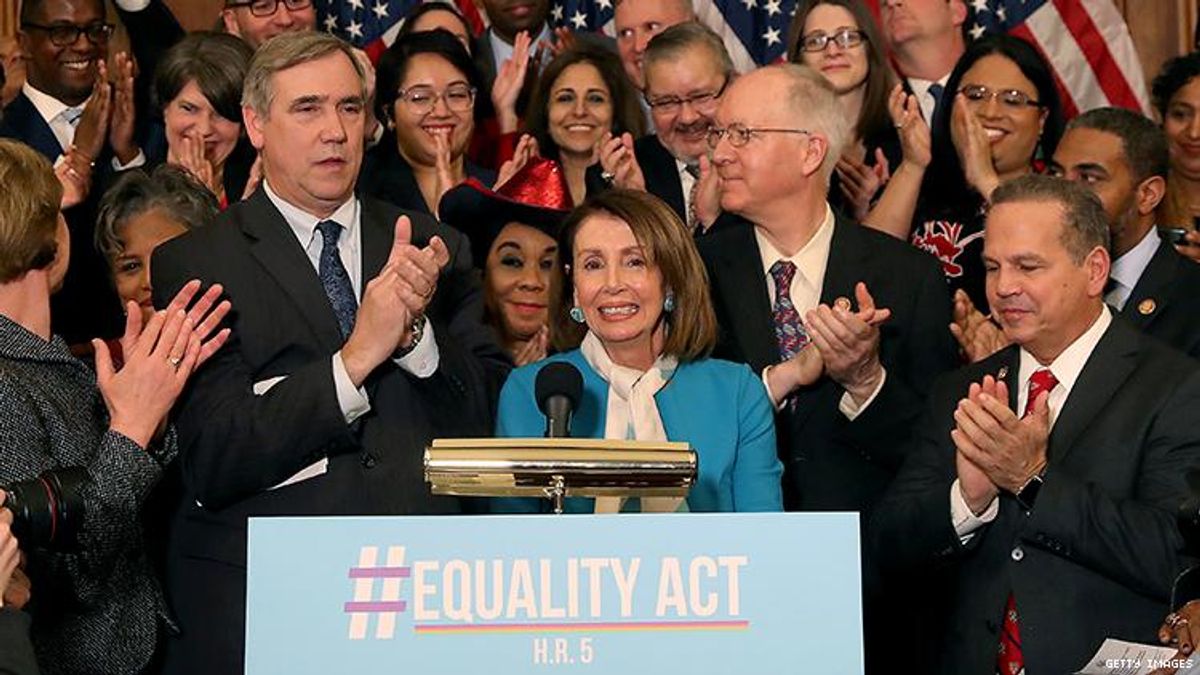The full U.S. House of Representatives is expected to vote on the Equality Act next week, sources told the Washington Blade Monday.
The tip came from a senior Democratic aide, who said there would be an official announcement Friday of the scheduled vote, the Blade reports.
The House Judiciary Committee approved the bill last week, voting 22-10 to advance it to the full House. All Democrats on the committee voted for it, all Republicans against.
This is the third session of Congress in which the act has been introduced and the first one in which it has advanced out of committee. The act would amend existing civil rights laws to ban discrimination based on sexual orientation and gender identity nationwide in employment, housing, public accommodations, credit, jury service, and other aspects of life. It is the successor to the Employment Non-Discrimination Act, which dealt with employment alone and never became law.
The legislation has 240 cosponsors, mostly Democrats, but including three Republicans. Therefore, it should easily pass the Democratic-controlled House, where 218 votes constitute a majority. Its fate in the Senate is open to question, as Republicans hold a slim majority there. And if it passes both the House and Senate, Donald Trump is not likely to sign it into law.
House Speaker Nancy Pelosi has said she will make passage of the act a priority in this session. The lead sponsor in the House is Rep. David Cicilline of Rhode Island; the lead sponsor in the Senate is Sen. Jeff Merkley of Oregon. Both are Democrats.
There could be roadblocks thrown in front of the bill even in the House, though. "Republicans in the House have an opportunity to thwart the bill with a motion to recommit, a legislative maneuver that forces a vote on an amendment the majority would otherwise not allow to come up," the Blade notes. "It remains to be seen what the nature of the motion to recommit will be for the Equality Act."
When Barack Obama was president, the Departments of Labor and Justice held that the ban on sex discrimination in the Civil Rights Act of 1964 also covered discrimination based on sexual orientation and gender identity, but courts remained free to interpret that law. The Trump administration has taken the opposite stance, even arguing in court that the law does not prohibit such discrimination. The Supreme Court has agreed to hear cases regarding the law's scope. Passage of the Equality Act, however, would remove any uncertainty.














































































